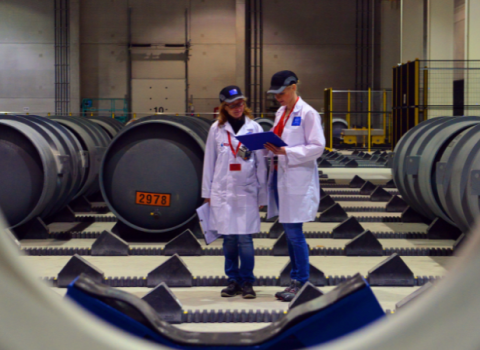The EU Commissioner for climate change Miguel Arias Cañete hailed important “turnarounds” in the management of the world’s largest fusion experiment, the International Thermonuclear Experimental Reactor (ITER), as he reaffirmed the EU’s support for the giant project.
Speaking to MEPs on Monday, Cañete said, “ITER stands out as one of the most promising, yet challenging, solutions to energy demand and can entirely reshape the world's energy map.”
The EU is contributing €6.6 billion to ITER, which has encountered a series of management difficulties, increase of costs and delays since its start. These troubles are “commonly inherent to any large-scale first-of-a-kind project,” Cañete said.
The building of ITER is now six years behind in its official schedule. However, Cañete claimed the management has, “succeeded in making a major turnaround to the project trend, stabilising it and addressing the concerns on the delays and cost overruns.”
Criticisms of the project were heard in April, when the Parliament’s budgetary control committee refused to sign off on ITER’s 2015 accounts, citing ballooning costs and delays.
MEPs said ITER’s budgetary and financial management lacked coherence and was often incomplete, criticising the management for its failure to publish a new action plan.
Instead of receiving a routine tick, ITER management instead faced demands to demonstrate improvements in the project’s financial management.
This was not the first setback for the project, which aims to prove the technical feasibility of nuclear fusion as a source of energy. In 2014, a highly critical outside assessment described a litany of problems including bureaucracy, the lack of a "project culture" and "unacceptably slow progress".
But the rocky road has smoothed out, Cañete reported. “I would like to highlight that more than a half of the milestones planned for this year are already completed, and the remaining ones are expected to be finished on time,” he said.
The project, a complex jigsaw which requires one million components paid for through a special ITER currency, has already generated a number of advances in fields as diverse as metrology, robotics and waste processing, Cañete added.
It has also been a boon for industry and research centres. “Between 2008 and 2015, [there were] over 750 contracts and 150 research grants related to ITER for an amount of about €3.6 billon,” the Commissioner said.





 A unique international forum for public research organisations and companies to connect their external engagement with strategic interests around their R&D system.
A unique international forum for public research organisations and companies to connect their external engagement with strategic interests around their R&D system.